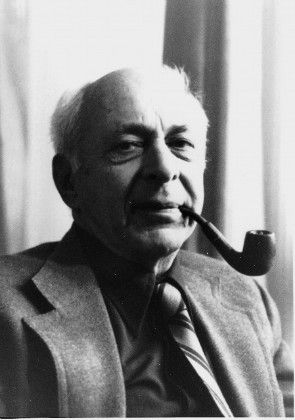Internal and External Influences on Human Behavior
- joebarrattcounsell
- Nov 1, 2025
- 3 min read
Updated: Dec 5, 2025
Internal and External Influences on Behaviour. The way people think, feel, and act is shaped by many different things. Some of these come from inside us - like our thoughts, emotions, beliefs, and personality. These are called internal factors. Others come from outside - like our family, friends, culture, and environment. These are known as external factors.
Psychologists study how both of these forces work together to shape who we are. Some theories focus more on what happens inside a person, while others look at how outside influences affect behaviour. By understanding both, we can learn why people behave the way they do and how they can grow and change.
Carl Rogers – Person-Centred Theory (Internal)

Carl Rogers, a well-known humanistic psychologist, believed that psychological distress happens when there is a mismatch between a person’s real self and their ideal self. People naturally want to reach their full potential - a process called self-actualisation - but external pressures and expectations can cause them to lose sight of who they really are.
Rogers believed therapy should provide unconditional positive regard, empathy, and genuineness. When people feel accepted without judgment, they can explore their true feelings, rebuild their confidence, and grow as individuals.
Example: A young adult who grew up believing they must achieve perfect grades to be valued might develop low self-esteem. In therapy, being accepted for who they are helps them form a healthier, more positive self-image.
Julian Rotter – Locus of Control Theory (Internal/External)

Julian Rotter introduced the idea of locus of control, which describes how people explain the reasons behind events in their lives.
People with an internal locus of control believe their actions and choices affect what happens to them.
People with an external locus of control believe their lives are controlled by luck, fate, or other people.
Those with an internal focus often feel more motivated and confident, while those with an external focus may feel powerless or discouraged.
Example: In a job setting, someone with an internal locus of control takes responsibility, works hard, and looks for ways to improve. Someone with an external locus might blame bad luck or unfair treatment if they don’t get promoted.
Albert Bandura – Social Cognitive Theory (Internal/External)

Albert Bandura’s Social Cognitive Theory combines both internal and external influences. He explained behaviour through reciprocal determinism - the idea that personal factors, environment, and behaviour all influence one another.
A key part of this theory is self-efficacy, or the belief in one’s ability to succeed in specific situations.
Example: A teenager might watch violent behaviour on television (an environmental influence) and be tempted to copy it. However, if they believe they can control their impulses (high self-efficacy), they are more likely to resist.
Fritz Heider – Attribution Theory (Internal/External)

Fritz Heider developed the Attribution Theory, which explains how people try to understand the causes of behaviour. We usually make two kinds of attributions:
Internal (dispositional): based on personality, attitude, or effort.
External (situational): based on environment, luck, or circumstances.
How we explain behaviour affects how we treat others and how we feel about situations. Example: A manager might think an employee performs poorly because they are lazy (internal cause) or because they lack proper tools and support (external cause).
The explanation chosen influences the manager’s response - whether they criticise or help the employee.
Bernard Weiner – Attribution Theory with Emotional Consequences (Internal/External)

Bernard Weiner built on Heider’s ideas by linking attributions to emotions and motivation. How people explain success or failure affects how they feel and what they do next.
Blaming failure on lack of effort (internal and controllable) may lead to guilt, but also motivation to improve.
Blaming it on a lack of ability (internal and uncontrollable) can cause shame and lead to giving up.
Blaming it on external factors (like luck or difficulty) might cause frustration or helplessness.
Example: A student who fails an exam may react differently depending on their belief. If they think it’s because they didn’t study enough, they may try harder next time. If they think the test was unfair, they may lose motivation.

For further reading on these perspectives of external/ internal approaches. These are some relevant books on the psychologists and psychotherapists mentioned.
Carl Rogers: "On Becoming a Person" (1961)
Julian Rotter: "Social Learning and Clinical Psychology" (1954)
Albert Bandura: "Social Foundations of Thought and Action: A Social Cognitive Theory" (1986)
Fritz Heider: "The Psychology of Interpersonal Relations" (1958)
Bernard Weiner: "An Attributional Theory of Motivation and Emotion" (1986)




Comments